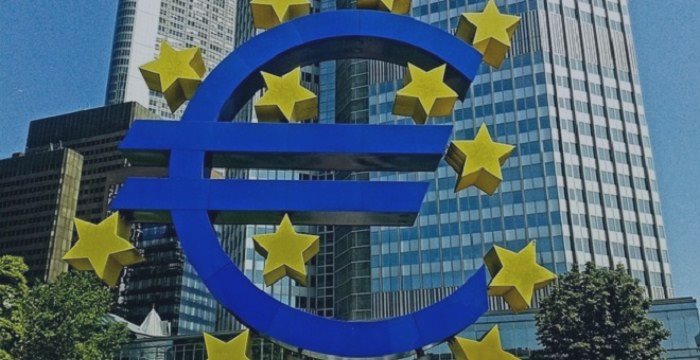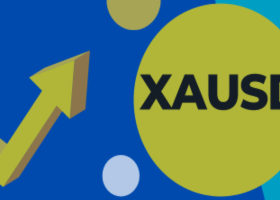The Euro recorded milestone lows against both the USD and GBP overnight, following the European Central Bank (ECB) finally presenting the long-awaited QE card from its stimulus package. In the aftermath of the markets getting to grips with the fact that ECB QE has finally arrived after what must be a year of intense anticipation, the EURUSD sailed all the way through 1.14 and set a new 11-year low at 1.1258 at the time of writing. To be honest, confirmation of QE being introduced meant it was just a matter of time before the EURUSD opened the doors to 1.12. Now that QE has at last been confirmed by the ECB, it would be self-explanatory to expect the longer-term bearish view on the EURUSD to be further reaffirmed.
There has been a dark cloud overshadowing the EURUSD for such a long time, that the ECB introducing QE will just further widen the divergence of both economic sentiment and monetary policy between the Federal Reserve and ECB. The EURUSD charts have shown complete one-way traffic since last May, with the consequence being the EURUSD dropping from 1.39 to 1.13 as a result. Now that the ECB has introduced QE, there are going to be increased chances of this pair reaching parity this year. Will it happen? The probability has increased now the ECB has introduced QE, but the Federal Reserve edging towards a US interest rate rise would further the likelihood of this happening.
Either way, the EURUSD is dropping like a stone and even the most modest of upside gains for the EURUSD are now further capped to USD weakness. As we have continually seen throughout the past six months, any USD weakness has been temporary and as long the Federal Reserve continues to repeat its intentions to raise US rates this year, any USD weakness is likely to be only a temporary trend. Overall, the EU economic sentiment is so bleak that there is going to be real hesitation towards purchasing the currency and even in the most bullish of EURUSD scenarios, the only way I can see this pair reversing is if the Federal Reserve swerves away from its previous repeated intentions to raise US rates this year. In the meantime, the potential for political uncertainty in Greece this Sunday evening will likely provide a further downside risk for the Euro.
With the EU being the UK’s main trading partner, the weakening of the EURGBP has probably provided the GBP with an even further negative sentiment. The GBPUSD has already below 1.50 at 1.4962 in the aftermath of the introduction of ECB QE and this is no coincidence. The weaker EURGBP has already led to UK exports to the EU declining by a reported 15% over the past year, and the further weaker Euro provides risks to this trend continuing. Anyway, the already-deteriorating investor attraction towards the GBP is extending even further. The announcement earlier this week that the two dissenting members of the Monetary Policy Committee (MPC) had committed a complete U-turn and switched their votes back to “NO” against a UK interest rate rise, has contributed in a major way towards this, with the switching in allegiance from the dissenting members most likely sweeping away any remaining optimism that the BoE might have raised interest rates this year.
As a result of UK exports being at risk to a repeatedly-declining Euro and optimism that the BoE might have been raising interest rates basically left sinking in the sea, alongside a general election in the coming months – the GBP will continue to suffer from a lack of attraction for quite some time. These aren’t the only factors that are going to be making investors hesitant to purchase the GBP either, meaning we also have disinflation concerns and slowing domestic momentum crumbling investor attraction as well. As such, GBPUSD upside gains are also being limited to either USD weakness or hopes that eased household budgets following the drop in oil will provide retail sales with a boost.
Overall, it would have been completely unimaginable to foresee a GBPUSD that was finding its feet at 1.70 only six months ago extending below 1.50 in the first month of 2015. With investor attraction towards the GBP being so weak and likely to become a consistent trend for the coming months, any solid USD gains could really expose the pair to fall much further.
Written by Jameel Ahmad, Chief Market Analyst at FXTM.
For more information please visit: Forex Time.
Disclaimer: The content in this article comprises personal opinions and ideas and should not be construed as containing personal and/or other investment advice and/or an offer of and/or solicitation for any transactions in financial instruments and/or a guarantee and/or prediction of future performance. ForexTime Ltd, its affiliates, agents, directors, officers or employees do not guarantee the accuracy, validity, timeliness or completeness of any information or data made available and assume no liability as to any loss arising from any investment based on the same.
Risk Warning: There is a high level of risk involved with trading leveraged products such as forex and CFDs. You should not risk more than you can afford to lose, it is possible that you may lose more than your initial investment. You should not trade unless you fully understand the true extent of your exposure to the risk of loss. When trading, you must always take into consideration your level of experience. If the risks involved seem unclear to you, please seek independent financial advice
NOTES TO EDITORS
The FXTM brand name was founded by Andrey Dashin in December 2012. FXTM provides access to the global currency market and offers trading in forex, precious metals, Share CFDs, ETF CFDs and CFDs on Commodity Futures. Trading is available via the MT4 and MT5 platforms with spreads starting from just 0.5 on Standard trading accounts and from 0.1 on ECN trading accounts. Bespoke trading support and services are provided based on each client’s needs and ambitions – from novices, to experienced traders and institutional investors. ForexTime Limited is regulated by the Cyprus Securities and Exchange Commission (CySEC), with licence number 185/12 and FT Global Limited is regulated by the International Financial Services Commission (IFSC) with license numbers IFSC/60/345/TS/14 and IFSC/60/345/APM/14.



